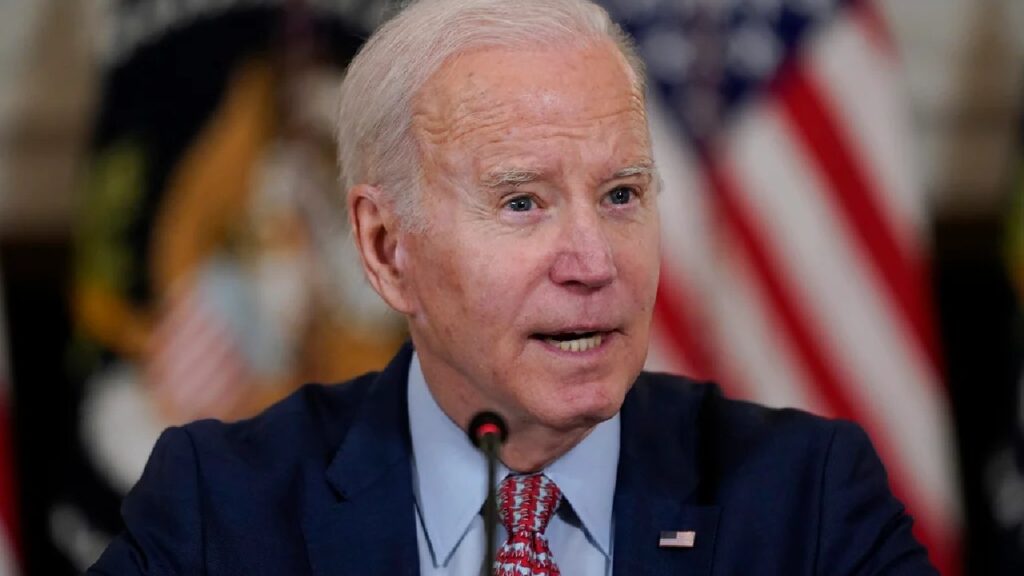Uncategorized
White House Cautions on Hazards of AI Implementation
White House—The Biden administration is confronting the rapidly expanding use of artificial intelligence, warning of the dangers the technology poses to public safety, privacy and democracy while having limited authority to regulate it.
Vice President Kamala Harris, who met Thursday with the chief executives of leading AI companies Google, Microsoft MSFT 0.33%increase; green up pointing triangle, OpenAI and Anthropic, said the technology “has the potential to dramatically increase threats to safety and security, infringe civil rights and privacy, and erode public trust and faith in democracy.”
Companies have a responsibility to comply with existing laws as well as an “ethical, moral, and legal responsibility to ensure the safety and security of their products,” she added.
The White House meeting came with the announcement of $140 million in new spending targeted toward AI research and development. But the federal government remains limited in its authority to regulate tools such as OpenAI’s ChatGPT that have prompted concerns around privacy, bias and the potential for widespread scams and misinformation.
The Biden administration views AI as a major opportunity for the U.S., but one that comes with significant risks. The administration has noted, for example, that systems designed to help with patient care have sometimes proven unsafe or ineffective, while algorithms used in hiring or lending have reproduced existing inequities or even created new biases and discrimination.
But so far, the administration has sought to place much of the burden of ensuring public safety on the companies developing the technology.
Get Financial Times and Barrons Combo Digital Subscription for $129
That partly reflects the paucity of tools the White House currently has to regulate artificial intelligence, some observers say. Generative AI, a category of technology capable of generating realistic but potentially dangerous content such as images or audio, is particularly true.
On generative AI, “there are some tools the federal government has, but mostly not,” said Robert Weissman, president of Public Citizen, a public-interest group. For example, he said that regulatory guardrails need to be developed before imposing a moratorium on AI development by President Biden.
This is a particular concern because although the technology is advancing rapidly and posing risks of disinformation and social disintegration, companies feel they cannot stop because a competitor will get ahead of them, added Mr. Weissman.
Some leading technologists, including Elon Musk, have called for a pause in AI development, citing the need for the development of safety standards. A top Google scientist recently quit his post, a move he described to reporters as allowing him to freely voice fears about the technology’s rapidly expanding capabilities.
The companies at Wednesday’s meeting aren’t slowing down. ChatGPT, the broadly available tool made available by OpenAI and Microsoft, is said to have reached 100 million users—faster than any other consumer app in history.
Microsoft, Google, OpenAI and Anthropic have previously said they are constantly updating safety guardrails, such as subjecting chatbots to human review or programming them not to answer certain questions. The companies have welcomed and sought to shape new regulations.
Get Wall Street Journal 2-Year Print Subscription Take for $480
Industry leaders attending Thursday’s meeting included Sundar Pichai, CEO of Google and Alphabet GOOG -0.86%decrease; red down pointing triangle, Microsoft CEO Satya Nadella, OpenAI CEO Sam Altman and Anthropic CEO Dario Amodei. Spokespeople for Google and Microsoft declined to comment. Spokespeople for OpenAI and Anthropic didn’t immediately return a request for comment.
Last year, the White House issued guidelines aimed at safeguarding personal data from misuse in AI algorithms, such as those that drive hiring, lending and other business decisions, described by the administration at the time as a “blueprint for an AI bill of rights.” But those guidelines were nonbinding and didn’t include enforcement measures.
In addition to the $140 million in new spending on AI research by the National Science Foundation, the administration this week also announced commitments from leading AI developers to participate in public evaluations of AI systems at a coming convention. “This independent exercise will provide critical information to researchers and the public about the impacts of these models, and will enable AI companies and developers [to] take steps to fix issues found in those models,” the White House said.
The White House Office of Science and Technology Policy also said it was beginning an effort to collect more information on how employers are using AI to track workers’ performance.
Get Wall Street Journal Newspaper for $318
“The constant tracking of performance can push workers to move too fast on the job, posing risks to their safety and mental health,” OSTP said in a blog post.
Separately, law-enforcement agencies recently issued a joint statement affirming their commitment to leverage their existing legal authorities to protect people from AI-related harms.
Officials attending Thursday’ meeting included White House chief of staff Jeff Zients, national security adviser Jake Sullivan and Commerce Secretary Gina Raimondo.
The current effort by the White House also could help build momentum for legislation that Senate leaders are trying to craft. Senate Majority Leader Chuck Schumer (D., N.Y.) said last month he plans to push legislation to help “shape and leverage this powerful technology.”
Some Republicans also are signaling interest in AI legislation that could help the U.S. compete with China economically.
But the path for any major legislation is highly uncertain in the current Congress, with Democrats running the Senate and Republicans the House, and a presidential election looming next year. The question of how to regulate AI is also complex, Mr. Schumer said on the Senate floor Thursday.
“This is a deep and difficult issue to deal with and that’s why we’re meeting with so many experts right now,” he said.

